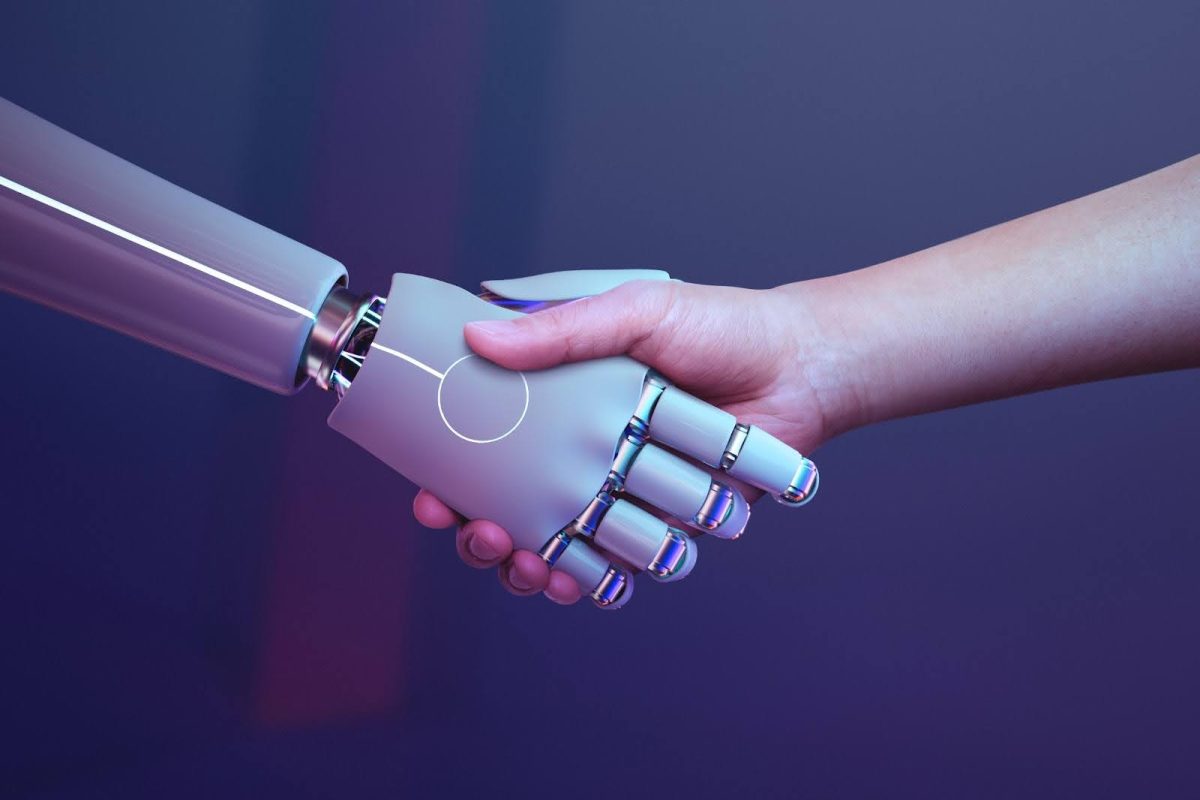The fear of the future: A world where all decisions are made by machines, not humans. A “perfect” program, unburdened by the human experience and grasping infinite knowledge, holding up the weight of the world in servitude of humans. Sounds amazing right? While AI has potential to revolutionize our lives, it is important to approach this new frontier with a healthy dose of caution.
The growth of AI has been as fast as a rocket launch. Back in the 1950s, AI was just a wild idea, much like the notion of humans setting foot on the moon. Fast forward to 2021, and the global AI market was valued at $62.35 billion. The market is predicted to grow at a massive compound annual growth rate of 40.2% from 2021 to 2028. Forecasts imply that there will be 8.4 AI-powered digital voice assistant units in the world by 2024, which surpasses the total global population. These voice assistants can quickly access information, control smart home appliances and manage people’s calendars by integrating with a variety of services and applications. In this vast expanse of technological advancement, people need to make sure they’re the ones steering the ship, not the other way around.
As AI’s potential grows, people begin to have far too much faith in its abilities. Of course, some of this faith is founded in reality, but much of it is not fully representative of AI’s skills and limitations. In this era of new technology we must be cautious of over-trusting artificial intelligence’s abilities. Although this growing technology is incredibly strong and definitely has its role in the world, it is imperative that we move forward recognizing its limitations. At no point in time should we allow AI’s position in the world to overstep into what should be a human’s role. Artificial intelligence is amazing, but it is not a “solve all” solution to global issues.
For one, it is incredibly important to recognize that AI will always be limited because it is a program. AI might seem like it’s an impartial and unbiased machine, but here’s the kicker: it’s created by humans, and we all have our biases. A study by MIT and Stanford in 2018 found that commercial AI systems had an error rate of tech failure of up to 34.7% higher for darker-skinned women than for lighter-skinned men. These issues arise due to artificial intelligence reflecting the biases of the people who create and interact with it. It is also important to remember that this unfairness is not always about race or gender. Biases can creep in anywhere – age, income, location, you name it. As people navigate the uncharted territory of artificial intelligence, they’ve got to be careful.
People need to make sure that AI systems are as fair and unbiased as they’d want any person of power to be. This technology becomes dangerous when people begin to have too much faith in the idea of a truly “artificial intelligence” and stop recognizing AI as a creation of the people it interacts with. It is imperative that people do not view AI as a perfect, faceless machine and rather as a program that grows to represent human interference. Although artificial intelligence is unique in the way that it can grow and learn, people should never forget that this ability to grow lends to it being influenced by human bias.
Another aspect of AI’s limitation is its lack of creativity. Due to the way in which it uses only solid data to come to conclusions it lacks very important aspects of human intelligence. AI can grow to mimic humans but it can never have causal reasoning, critical thinking, or fully understand human emotions. People must learn to acknowledge how this lack of humanity affects artificial intelligence’s job in the world. It is a very real concern that as AI becomes more prevalent, people might lose some of their individuality and creativity. After all, AI algorithms often prioritize popular or trending content, which can lead to a sort of homogenization of ideas.
A 2019 study published in the Creativity Research Journal found that while AI can enhance human creativity in certain contexts, it can also potentially hinder it by over-relying on data-driven approaches. The study emphasized the importance of maintaining a balance between human creativity and AI assistance. Lastly, overreliance on AI can lead to massive loss of human jobs. Industries like manufacturing and transport have seen job displacement due to AI technology taking over jobs. It is incredibly important that, as the way for new technologies is paved in the world, people pay close attention to unemployment issues that arise.
As we hurtle towards a future increasingly intertwined with artificial intelligence, it’s crucial that we maintain a balanced perspective. Yes, the potential of artificial intelligence is staggering, with forecasts predicting more AI-powered digital voice assistants than humans by 2024. And yes, the growth of AI has been meteoric, with the global market size poised to skyrocket over the next decade. But amidst this enthusiasm, we must also exercise caution.
Over-trusting AI’s capabilities can lead us down a slippery slope. Despite its strength and utility, this new technology is not a universal remedy for all global issues. It is, after all, a creation of humans, and hence, inherently limited. It lacks the human experience and the nuanced understanding that comes with it. As we navigate this brave new world, we must ensure that we’re at the helm, guiding AI, rather than being led by it. The future of AI is exciting, but let’s not forget: it’s our human touch that makes it truly remarkable.













